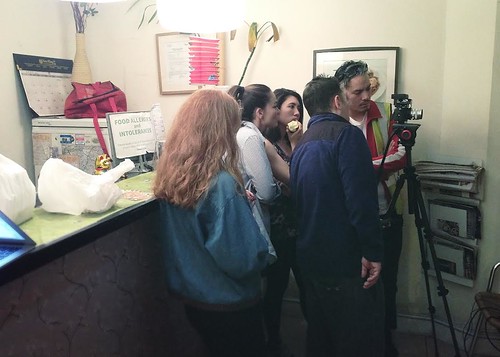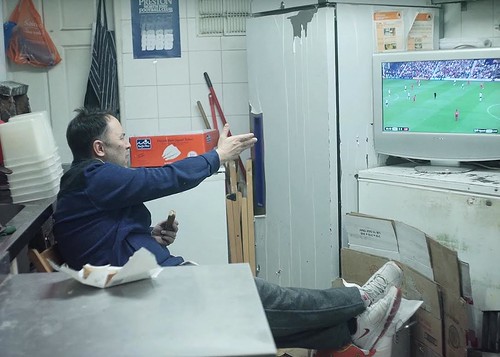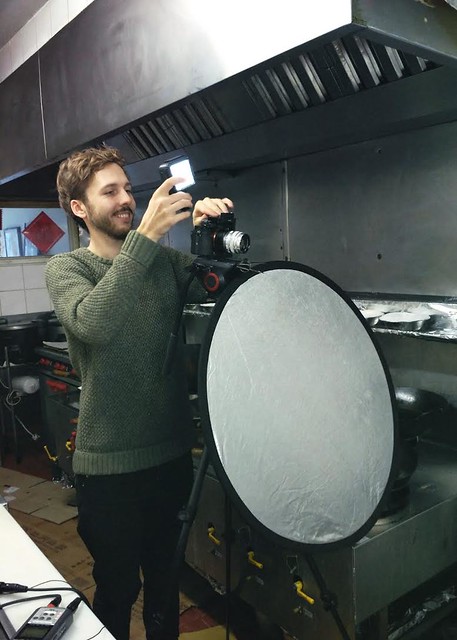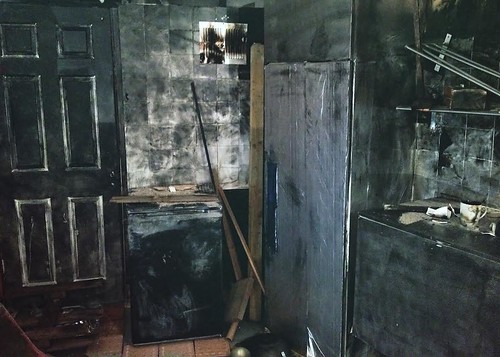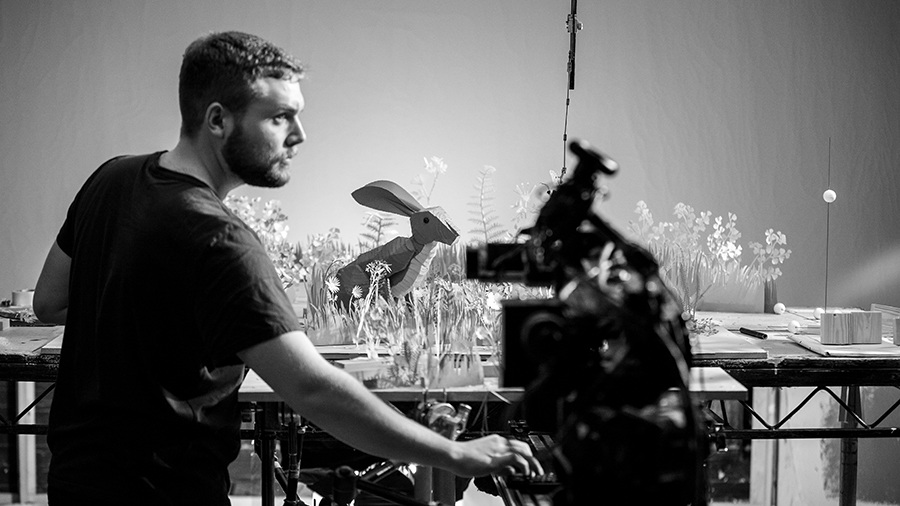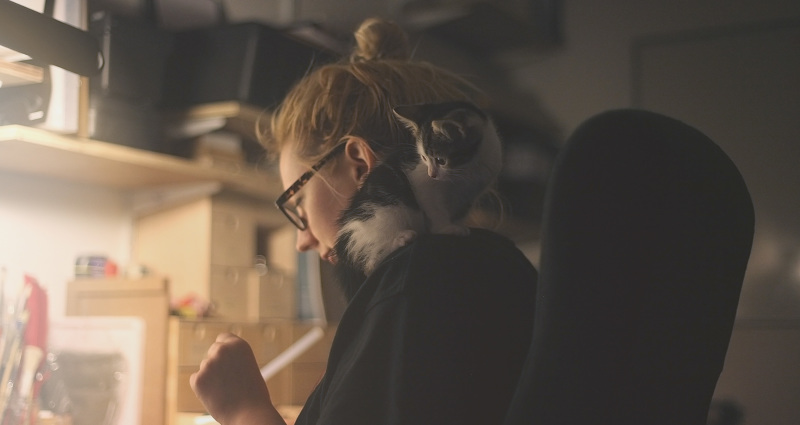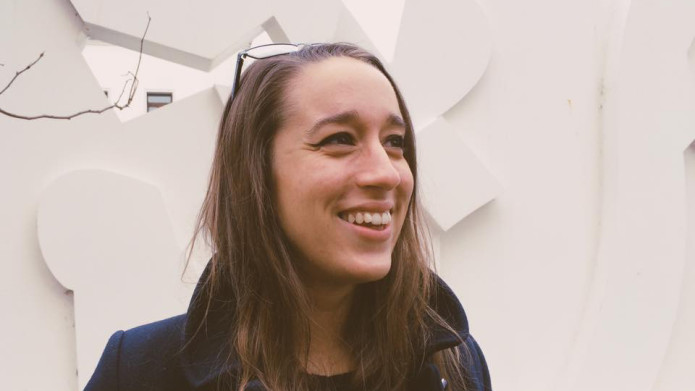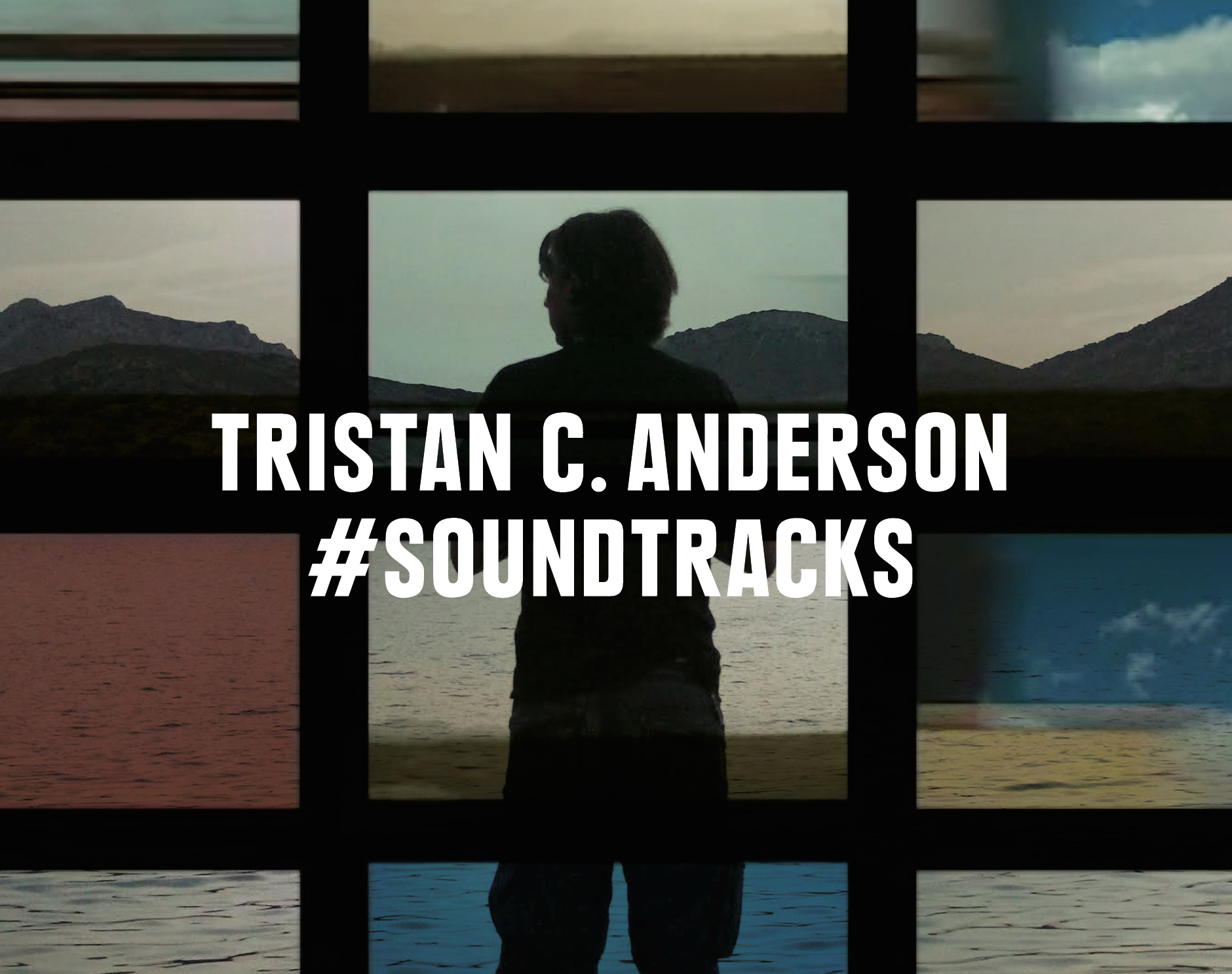‘Beast’ Director, Michael Pearce, Answers Your Questions
Gathering critical acclaim across the board, new feature Beast (in UK cinemas now) is the debut film from writer-director Michael Pearce, who has been described as part of “an exciting wave of new British directors”, alongside other recent break-out filmmakers such as William Oldroyd (Lady Macbeth), Rungano Nyoni (I Am Not a Witch), Francis Lee (God’s Own Country) and Hope Dickson Leach (The Levelling).
Born in Jersey in 1981, Michael studied Film Directing at the Arts Institute in Bournemouth. His graduation film Isaac and Ellen won Best Screenplay at Cherbourg Film Festival and Top Prize at the Sehsüchte International Film Festival. Michael then attended the National Film & Television School to study Fiction Direction. His graduation film Madrugada won the Top Prize at Branchage Film Festival and The Royal Television Society Award for Best Short Film.
His next short Rite was nominated at the 2011 BAFTA’s and BIFA’s, travelled to over 40 festivals and won Best Short at Rushes Soho, Message to Man and Almeria Film Festival. Michael was selected to be one of Screen International’s Stars of Tomorrow and part of Channel 4’s Coming Up Scheme where he made Henry. His next short Keeping Up with the Joneses was made through the BFI Shorts Scheme and was nominated for a 2014 BAFTA, alongside premiering at Clermont-Ferrand.
We were lucky enough to have Michael as our judge for our most recent SHORT CUTS competition, and to have him join us in person at our SHORT CUTS event last month, where he shared stories about making his debut feature and his creative journey along the way. We invited Shooters to post in their questions for Michael, and we share his response below.
My passion lies in directing, but I struggle to find screenplays out there that really spark with me. This means I end up writing stuff for myself, but it’s not a creative process I particularly enjoy. Did you set out to be a writer / director, or did you do it out of necessity? As someone who really just wants to direct, do you think I should just be less picky and start directing other people’s scripts even if I’m not in love with them?
If it’s any consolation I don’t enjoy it either, and neither do many writer-directors, but it I do think writing your own material makes you a better director and will make you stronger at development when you work with other writers. Finding a writer is probably the most difficult creative partnerships for a director to make. My advice: keep looking (but don’t expect to find one) and keep writing because every script you write will strengthen your story muscles, which you’ll need because no script is perfect, and a director needs to have the development skills to shepherd a script across the finish line.
I initially set out to be a writer-director because you have full control of what you’re making. Since moving toward features, I wanted to work with other writers because I find it takes me a lot of time, but I couldn’t find someone I was creatively in-synch with so I kept on writing. However, having now made a feature, I get access to many more scripts. I’m really glad I wrote a lot of my shorts and my first feature as I know the experience fortified my story intuition.
I did direct a couple of shorts from other people’s scripts and that was through schemes such as BFI Shorts and Coming Up (I’m not sure either of those exist anymore). With regard to the last part of this question, it would depend on what type of director you want to be. If you want to develop a strong authorial voice then I would suggest you only work on projects that you’re deeply connected to (whether you write them or not). If you want to become more of a director for hire/TV director then it doesn’t always have to be a passion project, you can learn a lot from working on all sorts of material. But I think you have to love something about it, it’s very hard (impossible?) to make a good piece of work if the filmmaker is indifferent to the material. If you don’t like it, how will you inspire your cast, crew and audience? To some degree I think the quality of a film is correlated to the director’s passion for the project.
From your initial idea to make Beast, to getting it into the cinema, how long was that process and what were the key stages of development?
Something like seven years. I wrote a treatment over one year at the Torino Film Lab. It took a year because I went from blank page to a very developed treatment (it was about 35 pages). I then got some producers onboard and started working on the first draft, which took about another year. Then there were nearly two more years of development as I got more producers on the project and started getting the funders onboard. As I went through all of these stages I was making some shorts and ads so there was quite a bit of starting and stopping. There was 6 months of development as we were beginning early prep (budgeting the film, starting the casting process). Then the film took about a year to make from pre-production (5 weeks) shoot (5 weeks) edit (6 months) sound, music, vfx, color grading (3 months). Then there’s a gap as you’re submitting to festivals (the most terrifying moment). Once we premiered there was about 6 months of festival touring, doing press, working with the distributors on the marketing of the film, which you’re doing as you’re trying to drum up opportunities for you next project.
I’ve had an idea for a feature for a few years now, but am too scared to start writing it for fear that it will take me ages to finish or that it won’t get realised. How did you approach writing a feature length script for the first time? What advice would you have for someone in my current position?
To be honest I’m not sure how best to answer your question – you don’t want to start writing your script because it might take too long? I would ask yourself whether you really want to be a writer/director. It’s a very work intensive, competitive and often bruising profession and if you’re reticent to even begin the journey because it might be long or difficult it might be a signifier to look at other creative roles. If you definitely do want to be a writer/director, but are just a bit hesitant, then I would first assess whether you’re ready for a feature – do you have proven track record of writing/directing successful shorts?
From a purely practical point of view it will be much easier (thought still difficult) to get funding for your feature if you have demonstrated your ability in several shorts. And how badly do you want to make your film? Werner Herzog says “I would travel down to Hell and wrestle a film away from the devil if it was necessary.” How far would you go? It needs to be an all consuming, quasi-fanatical obsession. You need to want to make it really really really bad. That doesn’t mean there won’t be hesitations and moments of doubt along the way, but you do need to a have lot of energy, commitment, passion and focus to keep the furnace going so you can plough through the many roadblocks you will inevitably face and inspire the many people you need to help make it.
In terms of process, I would break it down into more manageable chunks; write a 5-page treatment first and a few pages on why you want to tell that story. Get friends to read it and provide feedback and if you’re encouraged by the response (some of which might be critical but helpful) then flesh it out, write a 10-page treatment. Repeat the process of getting thoughts and developing the material until you feel confident you have the story mapped out. The first draft will be a lot easier if you know the direction you’re going in.
What was your casting process? What did you take into consideration when meeting talent e.g. did you only audition actors who already had a certain amount of experience or who had attended drama school? Did you rehearse any of the work with the actors before shooting? Have you got any advice for directing actors on set?
I worked with a very good casting director, Julie Harkin, who has wide-ranging knowledge of what actors are out there. For Beast I felt it was important that they were trained actors (as opposed to street casting) and I wanted to see people perform in the audition room (as opposed to making offers to actors who were too ‘big’ to audition for a first time director). I rehearsed for four days with the actors, which isn’t much, but it’s hard to do more than week on a low budget feature. What was just as helpful was meeting my actors and speaking about the film and their roles and supplying them with material: research, character biographies, films, books etc. We had several months between casting them and pre production and it really helped us tune into each other and meant we had discussed the script and character in lots of detail, and from different angles, before the shoot.
Advice for working with actors is a very big question, but if I had to offer some short tidbits I would say prepare as much as you can before the shoot, meaning analyse and examine the text, you should have a unique and exciting idea for practically every line (you won’t use 80% of these ideas but it will help you create the most interesting version of each scene). Try and be clear and succinct in your direction (directors can tend to waffle a lot) whilst providing the actors with thoughtful and stimulating ideas. Give the actors clear parameters for what you’re aiming for and briefly talk them through the nuts and bolts of the scene (how you’re going to shoot it), but leave room for discovery and collaboration, don’t make them feel constricted or discouraged from exploring new ideas.
Adjust your working method for the actor, try to accommodate to their process, as opposed to making them work to yours (each actor is different and might need different type of direction). Never give result direction, don’t tell actors what to feel, emotions are the by-products of behaviour, communicate the subtext, the most interesting interpretation of the line is often buried deep underneath. And as P.T Anderson says “take the work seriously but don’t take yourself seriously”.
I find it can be really hard to just get noticed in the film industry. I’ve made a few shorts, but haven’t yet got my film into festivals. Any advice on how I can take the next step and progress with my career?
Generally I find the filmmakers who progress are the ones who are most honest with themselves about their mistakes. When you’re able to identify and improve upon your weaknesses then your development really accelerates. And it goes without saying, but every day you should be deepening and expanding your knowledge of the craft. I used to hunt down all the shorts that were selected for the major festivals and try to learn from them. Watch the best shorts out there, ask yourself why did they get selected/win the prize and yours didn’t? Of course taste and subjectivity plays a big part in this, but often there are lessons to be extrapolated by watching work that is stronger than your own. I wouldn’t think about progressing you career until your shorts are being recognised by the industry. Focus on the work and the other stuff begins to happen.
I saw that you studied film at Bournemouth University and then also at the NFTS. Do you think that film school is a necessity for new filmmakers? Or do you think that it’s possible to learn just as much through other routes?
Film school is definitely not the only route but I found it very helpful. My basic philosophy was that I wanted to make lots of shorts, make lots of mistakes, improve upon the mistakes, set new challenges each time and be increasingly more ambitious and more thoughtful with each one. Film schools are a great way to do that and a great way to find your collaborators.
I loved your film Rite and really responded to both of the characters’ emotional journeys, they are both really well drawn. There are also some strong themes there that have been really delicately handled. I’d be interested to know how you develop your ideas and if it’s character that comes to you first or if it’s story or maybe it varies depending on the project?
Thank you, glad you enjoyed the film. Usually I have a theme I want to explore which either comes from an observation I’ve made in my own life or an aspect of human behaviour that confuses me, either way, I have to be deeply fascinated by something and making a film is usually an attempt to understand the subject. I then generate a story to explore this theme and the characters remain quite archetypal during this initial stage. Once I have a rough story I’m happy with I then go through a process of excavating the characters, revealing their layers and making them three-dimensional. Once they’re alive and kicking I then have to adjust the story as they often (frustratingly) want to go in a different direction than the road I’ve mapped out. That’s okay though as I generally will subordinate everything, including the initial theme, to honour the character’s journey. Often you end up in a place that’s more interesting, nuanced and specific because it’s humanised through your characters, as opposed to having your characters be one-dimensional ciphers used to communicate your ‘thesis’.
Congratulations on making your debut feature – that’s a real accomplishment! It’s often said that the real difficulty comes in making your second feature. How much does funding for your next project depend on the critical and financial success of Beast?
Thank you! And you’re right, I keep hearing it’s the second which is the hardest. The critical/industry success matters a lot, financial not so much, but if that happens too it certainly helps. I feel like with your first feature you’re being judged on your potential and I think the opportunities that emerge afterwards will correlate to the qualities people can see in your work – the performances, aesthetic approach, thematic depth, originality of storytelling, and just on a very immediate level, did it move, provoke, entertain etc, whatever the desired effect was. However, if you’re looking to make explicitly commercial films then I imagine you will be judged more on the financial success of the film.
Beast is in UK cinemas now.




